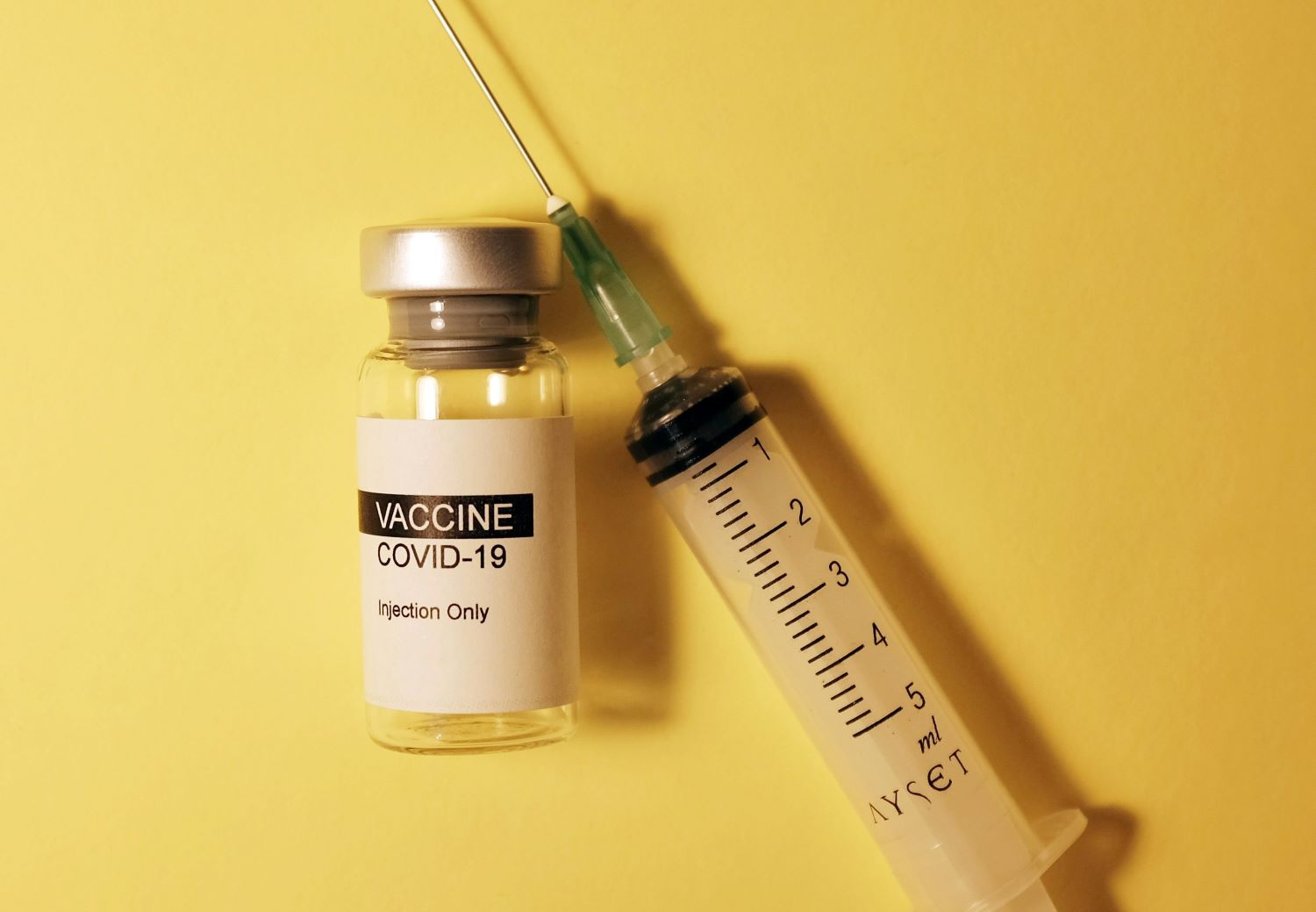The Government has announced a significant expansion of the mandatory employee Covid-19 vaccination requirement, saying that vaccination is “critical to preventing the spread of COVID-19”.
Based on the announcement, by the beginning of 2022, many health sector workers, and most early childhood, primary, and secondary education sector workers, will be required to have received two doses of the COVID-19 Pfizer/BioNTech COVID-19 vaccine (the only vaccine available in New Zealand at present).
Until the announcement, the COVID-19 Public Health Response (Vaccinations) Order 2021 (Order) has required certain border workers to be vaccinated against the virus, to continue working in those roles. Limited exemptions were available.
Previously, the Government had indicated reluctance to widen compulsory vaccination requirements. As recently as August, limiting requirements to those working in MIQ facilities, on aircraft, and at ports and airports was seen as sufficient to protect those most at risk of exposure to the virus.
However, now with the Delta variant having been circulating in the community for over a month, Ministers have decided they “can’t leave anything to chance” in ensuring the robustness of these important sectors.
Who is affected?
In his press release announcing the policy change on 11 October, COVID-19 Response Minister Chris Hipkins said that anyone carrying out “high-risk work in the health and disability sector” will need to be fully vaccinated.
The Minister said this will include “general practitioners, pharmacists, community health nurses, midwives, paramedics, and all healthcare workers in sites where vulnerable patients are treated (including Intensive Care Units)”. It is also likely to include workers in “aged residential care, home and community support services, kaupapa Māori health providers and Non-Government Organisations who provide health services.” The Government had not yet worked out the full list at the time of the policy being announced. Definitive guidance will not be available until the amendment Order is published, and the list should be considered subject to change.
The position is clearer for the education sector. The expanded mandate will include the staff of all primary and secondary schools, kura, and all early learning services and providers who may have contact with children. The Minister said this will include all home-based educators, and all support people in schools and early learning services “such as teacher-aides, administration and maintenance staff and contractors.” From 1 January 2022, schools, kura, and early childhood services and providers will need to maintain a vaccination register for staff.
The Minister said that the Government was still undertaking policy work as to whether mandatory vaccinations will be required for the staff of tertiary education providers. With the stated rationale for imposing such wide-reaching requirements being that vaccines are not yet available for children under the age of 12, the Government may not immediately take that step.
When do newly affected workers need to get vaccinated by?
Based on the announcement, health and disability sector workers caught by the new mandate would need to receive their first dose of the vaccine by 30 October 2021, and their second no later than 1 December 2021.
Staff in the education sector covered by the requirement would need to receive their first dose by 15 November 2021 and their second by 1 January 2022. The Minister has said that those who are not fully vaccinated by 1 January 2022 will be required to undergo weekly COVID-19 testing.
Assuming the Government follows the model currently applicable to border workers, workers commencing employment in newly mandated roles after 30 October 2021 or 15 November 2021 (depending on which sector they are in), will likely need to have received one dose of the vaccine before starting in that role, and their second within seven weeks of their first.
What will employees and employers need to do?
As noted above, we do not yet have the wording of the proposed Order. However, the Government’s statements suggest it will apply the provisions currently applicable only to border workers. Assuming this is the case, then the following would apply:
- It would be an offence for affected workers to carry out jobs listed above unless they are vaccinated, or partially vaccinated during the transition periods set out above.
- Employers would commit an offence if they allow affected workers to carry out their roles unvaccinated (unless an exemption applied).
- Employers would be required to notify people caught by the Order of their duty to be vaccinated.
- Affected workers would commit an offence if they deny their employers access to their COVID-19 vaccination records, or withhold details of their vaccination dates.
- Employers whose employees are covered by the Order would be required to facilitate their employees receiving vaccination during work hours.
- Non-deliberate breaches of the Order would be infringement offences. The enforcement officer could either issue a $300 on the spot fine, or take the matter to Court and request that a fine of up to $1,000 be imposed.
- Deliberate breaches of the Order could result in a criminal conviction, and imprisonment of up to six months. Parliament recently increased the maximum fine payable for these more serious breaches to $4,000.
Will exemptions be available?
In the press release, the Government said that “under certain circumstances exemptions may be possible.”
Assuming the Government carries forward the provisions applicable to border workers, we anticipate that at least the current medical exemption will apply to employees in the new covered sectors.
In order to receive an exemption, an individual must have been examined by a ‘suitably qualified health practitioner’ who has certified that vaccination would be “inappropriate” because the person has “particular physical or other needs”.
Once their employer is satisfied and reports that exemption to the Ministry using the online register, the employee is permitted to work unvaccinated, but must provide confirmation of that exemption to their employer or an enforcement officer on request. In this case, the employer will need to consider whether the employee is safe to work and/or whether the health or other condition making them inappropriate for vaccination, also makes them more vulnerable in terms of risk of Covid exposure from a health and safety perspective.
Additional requirements for the education sector
As well as extending the vaccination mandate to certain education workers, the Government announced two further policy changes affecting schools and early learning services and providers, being:
- From 1 January 2022, secondary schools and kura will need to keep a register of their students’ COVID-19 vaccination status. Students who do not confirm they are vaccinated are to be deemed unvaccinated.
- All school workers in Auckland and other regions that were at Alert Level 3 as of 11 October 2021, will need to provide a negative COVID-19 test result before they can return to work onsite.
This announcement came as the Government announced that Auckland schools will remain closed to most pupils as Term 4 begins on 18 October 2021.
What can employers with employees who refuse the vaccine do?
The expansion of the mandate is likely to lead to renewed calls for the Government to provide more clarity to employers on how to comply with their employment law obligations in the face of COVID-19.
Despite the compulsory vaccine requirements, the duty of good faith under the Employment Relations Act 2000 continues to apply. This means careful consultation/communication of timeframes and any compulsory requirements is necessary, as well as engagement around any exemption that may apply. Any employment action taken as a result of the new requirements will need to be justifiable in terms of the Act, and a proper employment process conducted (e.g. termination of employment due to failure to be vaccinated). Alternatives, such as redeployment into a non-vaccine required role, or consideration of an exemption should be explored. The Employment Relations Authority has so far upheld the dismissal of a customs employee who refused vaccination and confirmed that the ordinary justification test applied, and also declined an application for interim reinstatement for aviation security officers who were dismissed after declining vaccination.
We anticipate that there will personal grievance claims resulting from implementation of these requirements, and further case law will be released which will assist employers in navigating their obligations.
Where we can help?
We have been advising our clients on a wide range of employment issues arising in relation to COVID-19, including in interpreting and applying the Border Order, consulting with employees, Privacy Act issues and related employment and health and safety issues. With the frequent changes and developments in this space, it is important to seek advice where unsure, to ensure your business complies with all of the requirements.



